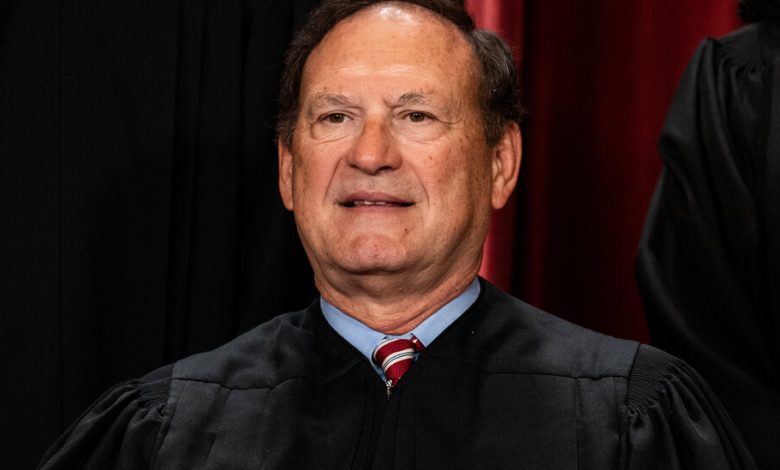Experts Question Alito’s Failure to Recuse Himself in Flag Controversy

Supreme Court justices seldom give reasons for their decisions to recuse themselves. Even rarer are explanations for deciding to participate in a case when they have been accused of conflicts of interest.
Justice Samuel A. Alito Jr. is an exception. He seems positively eager to explain himself. But whether his explanation has helped or hurt his cause is open to question.
On Wednesday, Justice Alito wrote letters to Democratic lawmakers saying he was not only permitted but also obligated to sit on two cases arising from the Jan. 6, 2021, attack on the Capitol despite controversies over flags displayed outside his houses associated with the “Stop the Steal” movement.
Experts in legal ethics said they welcomed Justice Alito’s decision to explain himself. But they were not persuaded by the reasoning in his letters, which said the flags had been flown by his wife and so did not require him to step aside in the pending cases, on whether former President Donald J. Trump is immune from prosecution and on whether a federal obstruction law covers participants in the Jan. 6 assault.
Mr. Trump praised the justice in a radio interview on Wednesday. “Alito is a tough guy, and he’s strong and very, very smart, and he put out a great statement today,” Mr. Trump said.
The controversy surrounding Justice Alito reflects wider questions about ethics and politics at the court. Public trust in the court has fallen amid a swirl of ethics scandals in recent years, many involving whether justices should have recused themselves, and scrutiny is certain to be intense as they decide cases concerning Mr. Trump that could influence the outcome of the next election.
